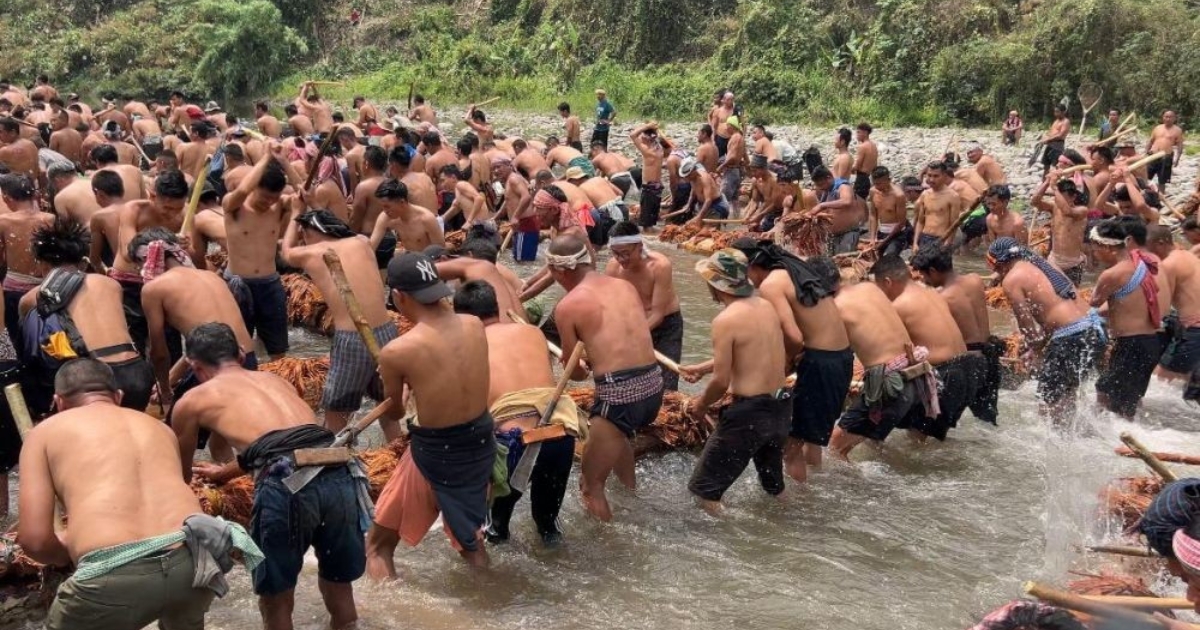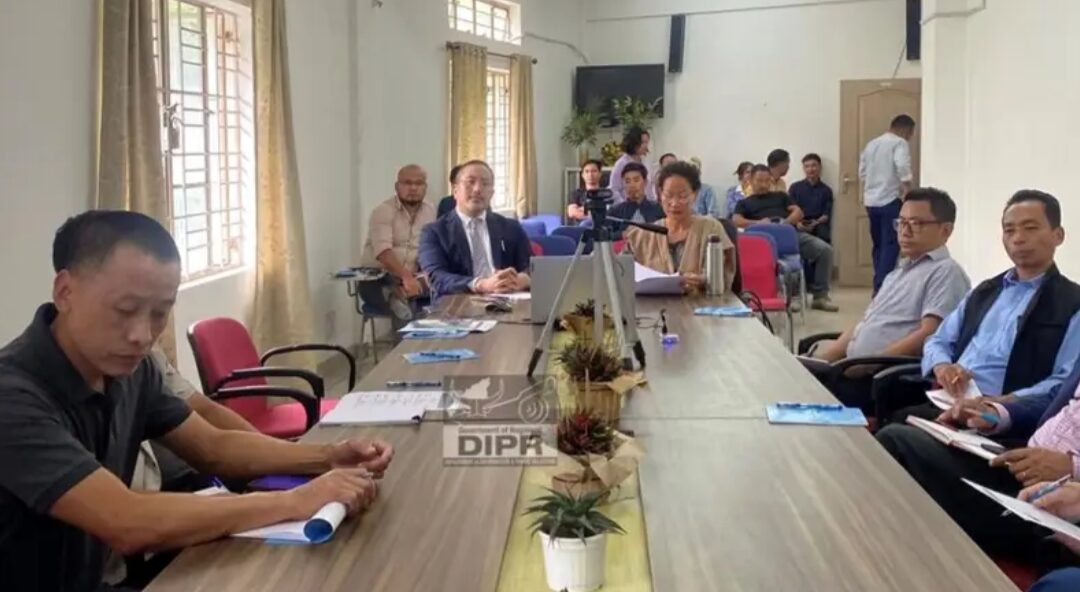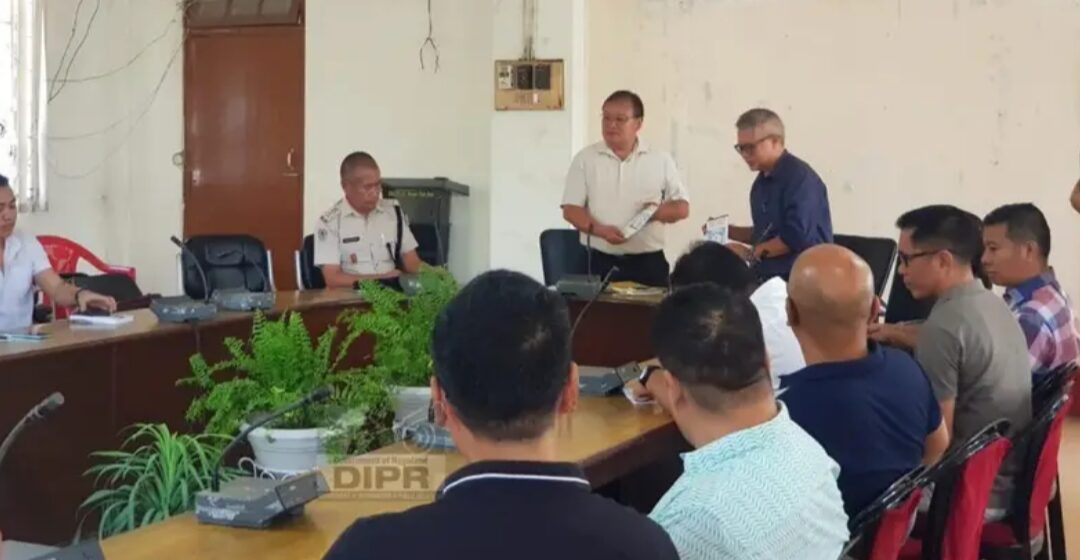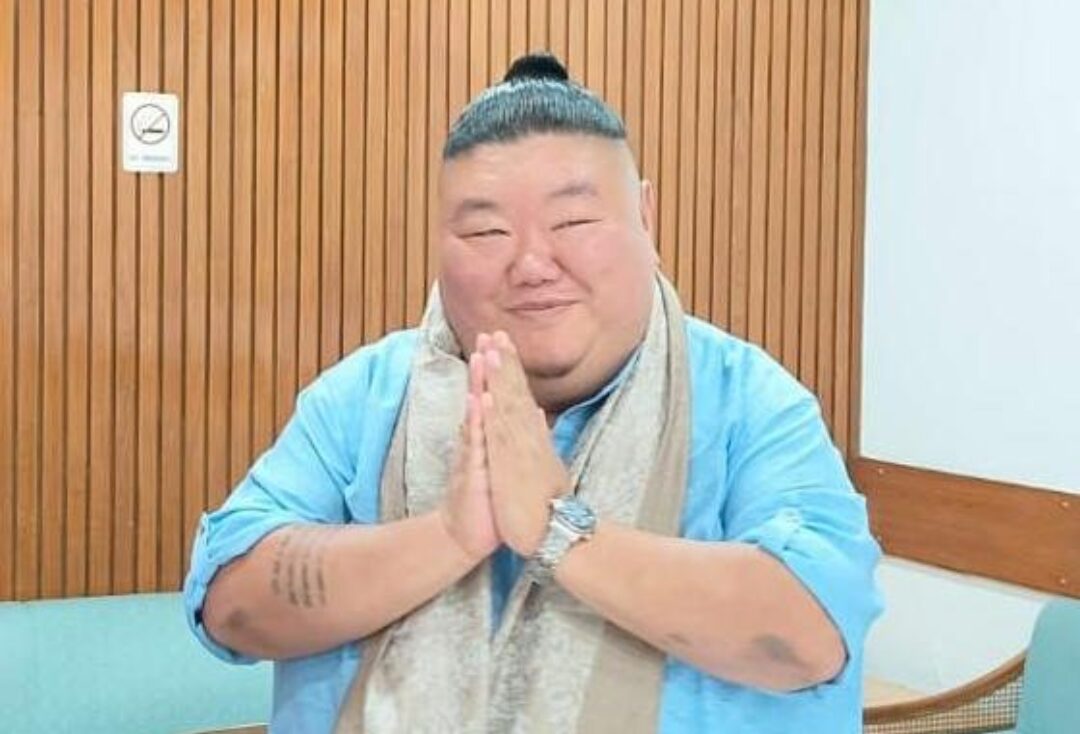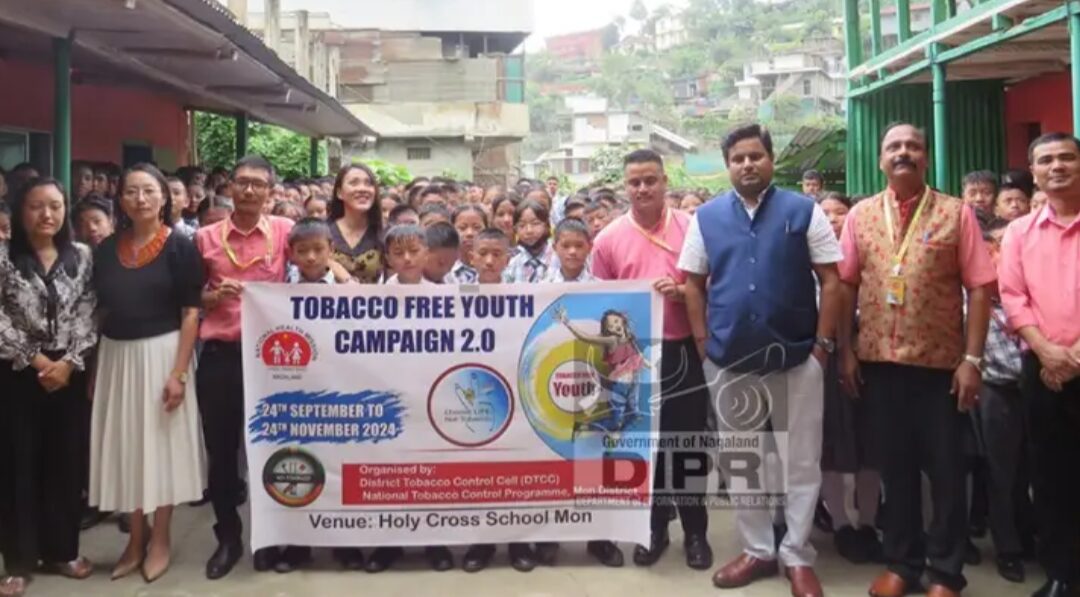The 21st Tsungiki-Philimi community fishing event, held on Friday, 5 April 2024, near the Doyang River in Nagaland, India, brought together people from 18 villages belonging to the Sumi and Lotha communities. This annual tradition, practised for the past 24 years, aims to strengthen the brotherhood and bond between the two communities.
The event was graced by the presence of several ministers and legislators, including Deputy Chief Minister Y Patton, Salhoutuonuo Kruse, Tovihoto Ayemi, Kazheto Kinimi, and Mhathung Yanthan. Deputy CM Patton actively participated in the fishing event alongside members from both communities, showcasing the spirit of unity and camaraderie.
Also Read: Wokha District Gears Up for Second Phase of Election Official Training
During the community fishing ritual, people from the Sumi and Lotha villages gather at the Doyang River near Coco Bridge. They pound bundles of piscicidal tree barks and roots, which are poisonous to fish, on logs or rocks in the flowing river to create foam. The intoxicated fish that float to the surface are then collected and cooked for a communal feast, symbolising the strong bond between the communities.
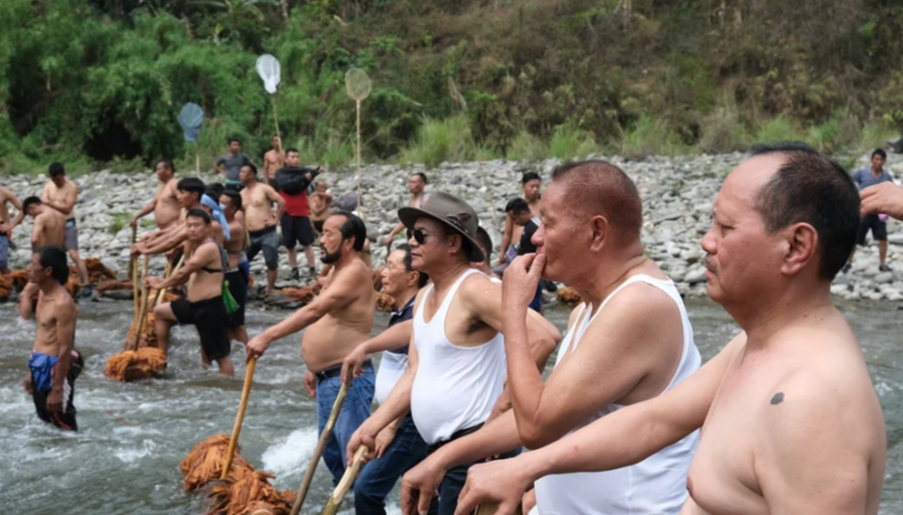
Addressing the gathering, Deputy CM Patton emphasised the significance of this age-old tradition in strengthening relationships. He encouraged the continuation of this practice and urged other Naga communities to foster cordial relationships for peace and prosperity in the state. Patton also endorsed the PDA consensus candidate for the lone Lok Sabha seat, Dr Chumben Murry.
Also Read: ENPO Announces Election Boycott Over Unfulfilled Statehood Promise
Minister Salhoutuonuo Kruse, the first woman minister of Nagaland, praised the event for promoting friendship between the Sumi and Lotha communities. She expressed that all Naga tribes should have such harmonious relationships to enable growth and progress in the region.
The Tsungiki-Philimi community fishing event, organised annually by the Tsungiki Village Council and Philimi Village Council, is one of the biggest fishing festivals in Nagaland. Outside vehicles, except for residents of the host villages, are charged a small fee of Rs 100 to attend the event.
This indigenous fishing practice, passed down through generations, not only strengthens community bonds but also raises awareness about the need to protect the Doyang Wetland areas and address declining fish populations. The event stands as a testament to the resilience of Nagaland’s cultural heritage and the enduring spirit of unity.
Also Read: Khriedi Theünuo and Congress Rally Against Religious Intolerance as Lok Sabha Elections Approach
The Tsungiki-Philimi community fishing festival is a vibrant display of Naga culture that promotes peace, harmony, and brotherhood between the Sumi and Lotha tribes. The involvement of state leaders underscores its cultural significance and the collective desire to preserve this unifying tradition for future generations.
As the communities come together to celebrate their shared heritage and strengthen their ties, the Tsungiki-Philimi community fishing event serves as a shining example of the power of tradition in fostering unity and understanding among diverse groups. It is a reminder that even in the face of modern challenges, the spirit of brotherhood and cultural preservation remains strong in Nagaland.
